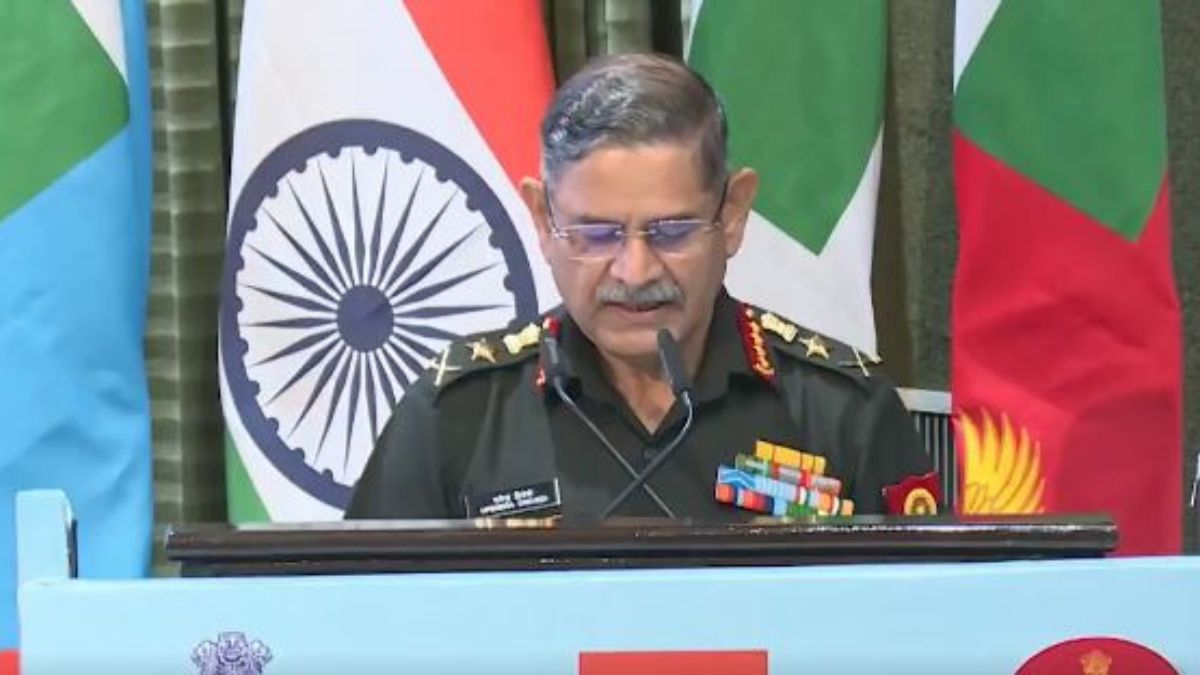'Hybrid warfare methods, new technology makes conflicts more complex’: COAS General Upendra Dwivedi at the UNTCC

Chief of Army Staff General Upendra Dwivedi said that peacekeeping today is facing challenges from shifting geopolitical currents, which are straining the consensus in the United Nations. He made the statement while addressing the United Nations Troop Contributing Countries' (UNTCC) Chiefs Conclave in New Delhi.
General Dwivedi said that the global order is at an inflexion point and is marked by over 56 active conflicts and the involvement of nearly 90 nations.
He highlighted that newer technology, influences of non-state actors, hybrid warfare methods, and disinformation have made conflicts more complex than they used to be. ”The infusion of disruptive technologies, the growing influence of non-state actors, hybrid warfare, and the scourge of disinformation have blurred the traditional boundaries of conflict,” he said.
“Such realities demand more resilient, swift, and unified responses that only peacekeepers, working together, can deliver.”
He said this while addressing the leadership of 32 troop-contributing nations who together provide nearly two-thirds of all peacekeepers deployed worldwide.
Dwivedi also said that the UN troops must be ready for reduced funding for their missions. “ Reduced funding for UN missions will be a reality, and thus missions have to be planned with fewer boots on the ground and more reliance on tech,” he said.
He also said that with more technology, peacekeeping will become more about prevention rather than having troops on the ground. “With reduced numbers on the ground, we could also visualise UN Peacekeeping moving more towards preventive diplomacy and sustainable peacebuilding, not just armed presence. That is where militaries can contribute to negotiations.”
The general highlighted India’s role in the peacekeeping missions. He said that “India, as one of the largest contributors to peacekeeping, has sent approx 300,000 (three hundred thousand) men and women across 51 missions out of the total 71 peacekeeping missions of the UN. These include our early deployments in Korea (1950) and Congo (1960) to the current deployment in 09 out of 11 ongoing missions. “ He said that the troops who served with unflinching resolve are always willing to share their invaluable experience with everyone. He further emphasised this by talking about equipment that was developed by the country for its operations. He said, “We will also showcase indigenous equipment designed for peacekeeping operations, and we are prepared to share such capabilities with interested partners. In the same vein, we are also ready to adopt best practices from all countries. “
Dwivedi called the opportunity to host the conference in Delhi a privilege and said that it was “a reaffirmation of our shared determination to strengthen cooperation and carry forward the noble mission of global peace.”
He said that it reflected the country’s ethos of Vasudhaiva Kutumbakam—the world is one family—and that of Vishwa Bandhu—India as a friend to all.
The Indian Army is hosting the United Nations Troop Contributing Countries’ (UNTCC) Chiefs’ Conclave in New Delhi, beginning on Tuesday until 16 October 2025, bringing together senior military leadership of over 30 nations.
Defence Minister Rajnath Singh also addressed the conclave. The conclave is being held to address operational challenges, evolving threats, interoperability, inclusivity in decision-making, and the role of technology and training in strengthening UN peacekeeping, according to a government press release.
The conclave aims to reinforce collective commitment to global peace and security.
Defence